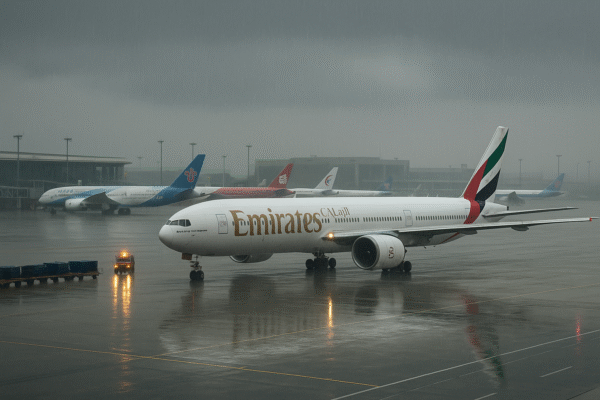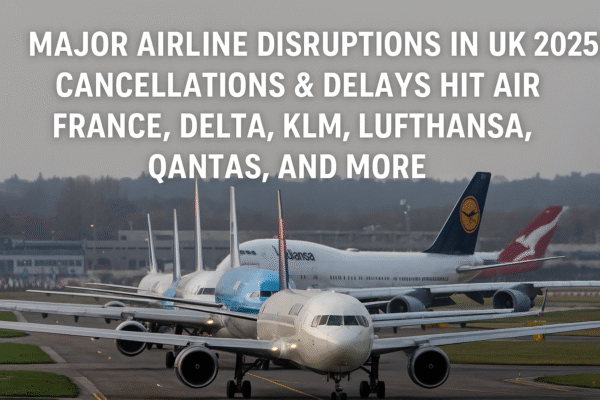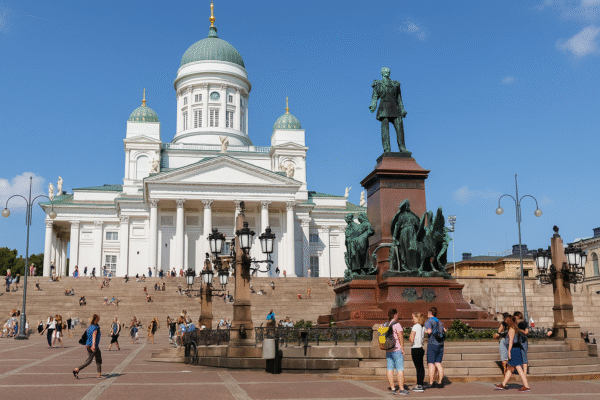Greece’s tourism sector has entered the summer of 2025 with robust momentum, posting record hotel occupancy rates and significant growth in average room prices. Data released by the Institute of Tourism Research and Forecasting (ITEP) for the Hellenic Chamber of Hotels (HCH) reveals that Greek hospitality is thriving—an optimistic sign for the remainder of the travel season.
The survey, which included a broad sample of 440 hotel properties spanning urban centers, island hotspots, and less-explored rural areas, reflects the continued appeal of Greece as one of the most coveted travel destinations in Europe. In June 2025, average occupancy reached 78.5%, compared to 75.7% during the same period in 2024—a 2.8% year-on-year increase that highlights strong travel demand post-pandemic.
Sustained Demand Across Popular and Emerging Destinations
The surge in hotel bookings isn’t isolated to one region. From Athens and Thessaloniki to the sun-drenched Cycladic islands of Santorini and Mykonos, accommodation providers report full calendars and steady tourist flows. Mature markets such as Crete, the Dodecanese Islands, and even Peloponnese have also recorded higher occupancy.
More interestingly, the upward trend extends to emerging travel destinations in the Northern Aegean, Epirus, and Mainland Greece, where more adventurous visitors are exploring authentic villages and inland natural retreats. This geographical diversification helps distribute tourism revenue more evenly and reduces seasonal pressure on iconic locales.
Room Rates Reflect Premium Travel Demand
Hotel pricing data also reinforces the sector’s healthy growth trajectory. The average cost of a double room in Greece climbed to €147 in June 2025, up from €142 in June 2024—marking a 3.5% increase. The weighted average room rate also rose from €95 to €107 per night, showcasing a market-wide strengthening in traveler spending and perceived value.
A striking indicator of sustained demand is the median hotel price, which increased to €75 from €70 over the same period. This means that half of all 10,000+ Greek hotels offered nightly rates at or below this price, appealing to budget-conscious tourists while supporting the growth of mid-range and luxury segments.
According to ITEP analysts, a significant portion of these gains stems from a global shift toward premium travel experiences. As international visitors prioritize quality, safety, and memorable encounters, Greek hotels—many of which have upgraded their facilities in recent years—are capturing higher-value bookings without discouraging budget travelers.
Economic Impact and Hospitality Sector Resilience
The upward performance in both pricing and occupancy underscores tourism’s essential role in Greece’s national economy, which accounts for nearly 20% of the country’s GDP, according to the Bank of Greece. Hotel operators across all star categories—especially 3-star to 5-star properties—report strong forward bookings for the remainder of the summer and early autumn.
Family-run boutique hotels, a hallmark of Greek hospitality, continue to attract travelers with their personal touch and local charm, often at competitive rates. Meanwhile, large international hotel chains benefit from digital booking platforms and loyalty programs that drive international footfall.
Methodology: A Representative View of the Industry
The HCH’s monthly analysis, conducted in partnership with ITEP, utilizes a stratified sampling model that reflects both star-rating diversity and regional spread. This ensures comprehensive insights from high-end resorts to modest seaside pensions. The survey’s findings draw on real-time hotel data, occupancy software, and direct feedback from participating property managers.
Such rigorous methodology provides policymakers and industry stakeholders with actionable intelligence to inform strategies related to destination management, infrastructure development, and seasonal workforce planning.
Infrastructure and Event-Driven Tourism Push Growth
2025 has also seen Greece invest heavily in modernizing its airports, ferry terminals, and public transport networks. The new terminal expansion at Athens International Airport, expected to boost capacity by 30%, is already enhancing traveler experiences and shortening transit times.
Additionally, Greece’s tourism calendar has been enriched with cultural festivals, international sports competitions, and art biennales, drawing both regional and long-haul tourists. Government-backed campaigns such as “All You Want is Greece” continue to succeed in repositioning the country as a year-round travel destination.
Future Outlook: Strong Fundamentals and Global Appeal
As the summer progresses, the tourism sector is expected to maintain its growth streak, buoyed by consistent airline connectivity, favorable weather, and a reputation for safety and cleanliness. Notably, Greece ranks among the top 10 safest countries in Europe for tourists, according to the European Travel Commission (ETC).
Furthermore, long-term efforts to improve sustainable tourism—such as Blue Flag certifications, eco-resorts, and heritage preservation projects—are appealing to an increasingly eco-conscious traveler base.
Conclusion: A Golden Summer for Greek Tourism
With hotels achieving historic occupancy rates and sustained room rate increases, June 2025 marks a defining moment for Greece’s tourism sector. The latest data signals not just recovery but renewed prosperity—a reflection of strategic planning, global market appeal, and the timeless allure of Greece’s landscapes, history, and people.
From island sunsets to ancient ruins, Greece continues to offer an unmatched visitor experience. If current trends hold, 2025 could become a record-breaking year—reinforcing Greece’s position as a global tourism powerhouse and a model for post-pandemic destination resilience.
For more travel news like this, keep reading Global Travel Wire
















